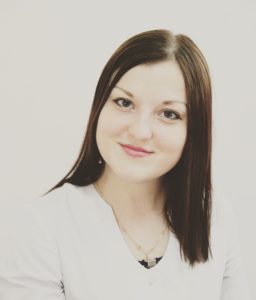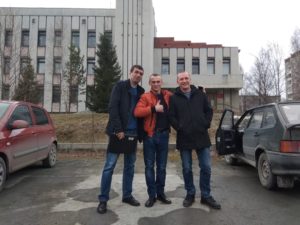“If you can help someone Here and Now, you should do it without postponing it or thinking what other people can do,” says Ekatherina Rusakova, Director of Sverdlovsk Regional Charitable Organization “Malaxit” supporting people in difficult life situations. “If every one of us helps at least one person, maybe it will drive changes in the society.”
To support these words, Malaxit implements the project “Social and legal support of people who use drugs in Yekaterinburg” with financing and support of the Emergency Support Fund for Key Populations in Eastern Europe and Central Asia (EECA).
Ekaterina how does your organization help people who use drugs in Yekaterinburg?

Mainly we provide social and legal support to clients to eliminate regulatory and discriminatory barriers, help them to get fair court decisions and access to free rehabilitation. Besides, we provide our clients with referrals to healthcare and social support institutions of the city. Our social worker makes outreach visits to families with small children. He provides consultations on HIV and treatment, helps clients to make appointments with specialists, assists them in re-issuing documents and receiving temporary registration in the city as clients are not able to receive medical or social services without registration.
Why did you decide to apply to the Emergency Support Fund for Key Populations in EECA?
We applied to the Emergency Support Fund because the situation of PUD in our city is difficult. Many people still do not recognize that substance use is a disease. However, this condition needs comprehensive treatment, including medical assistance, psychological and social support. Moreover, efforts should be aimed not only at the person using substances, but also at such person’s family as substance abuse is a systematic, family disease.
Of course, current situation contributes to the growth of HIV and other socially significant diseases (tuberculosis), while people who use drugs remain outsiders and the society prefers not to notice them. However, it is not possible to solve this problem pretending that it does not exist, after all sooner or later it will manifest itself and, most likely, in a very negative way. That is why, in our opinion, enough attention should be paid to secondary prevention and working with the “risk groups”.
What case from your practice do you remember best of all?

That’s a story of one of our clients. Andrey came to our project when he learned about it from his friends. Back then, there was an investigation against him based on part 2 of article 228 of the Russian Criminal Code. Our staff members signed a social support agreement with him, drafted procedural requests and collected all the necessary documents. Social worker of the project acted as a community advocate in court. A person from the rehab also took part in the court hearings. As a result of our joint efforts, Andrey got a suspended sentence with a course of rehabilitation.
What does the society think about your work?
It depends: some people support us, some don’t and it’s fine! All people cannot think the same and have the same “view of the world”. We are all different, with various views, values, attitudes, and that’s the beauty of human beings – in their differences…
Have you ever faced any challenges working with the key populations?
Speaking about the members of key populations, our target groups, they are all positive about our activities, they trust our staff members and our experience. We mostly see challenges related to new psychoactive substances, which our clients still use. That is why they can have unpredicted behaviours, treatment interruptions, etc.
How does engagement of the key populations in your activities help you in your work?
I think that when implementing such projects it is very important to engage members of the key populations. Without such engagement, it is not possible to reach PUD, who are a very closed target group, especially considering that in this group there is a very low level of trust to people.
Your example of a perfect society.
I don’t think I could give you an example of a perfect society. I tend to be realistic when looking at things, not losing myself to illusions. I do not like it when people say that somewhere there is a perfect country and a perfect society, where everything is fine, which we should strive to achieve. There are some pitfalls everywhere. It is important to realize that there are good things everywhere and we need to learn to notice and appreciate them. I am sure that we have to always start with ourselves and you can of course feel offended and be angry at our country and our authorities, but it does not bring any results. Speaking about a specific country with the approach to working with key populations that I like, for me it’s Portugal.
The project is supported by the Elton John AIDS Foundation and Aidsfonds.



